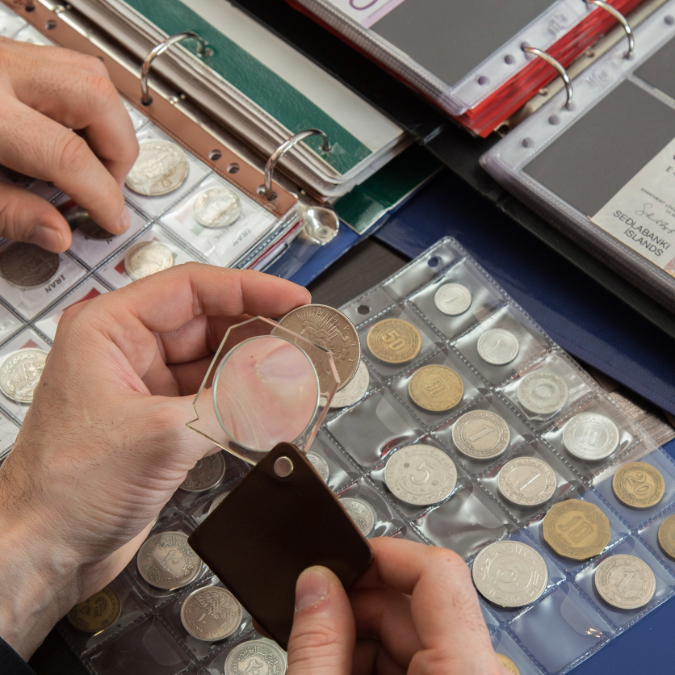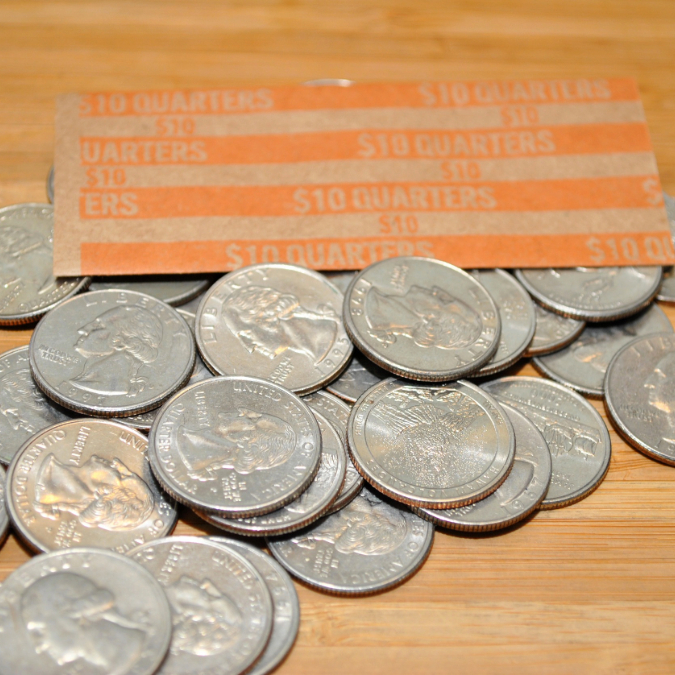
Have you ever glanced at the loose change jangling in your pocket and wondered if there could be something more than just small denominations? Well, believe it or not, there could be rare coins nestled among the ordinary ones, waiting to be discovered.
While most people dismiss coins as mere pocket change, collectors know that some coins are worth far more than their face value due to their rarity, historical significance, or minting errors. Here, we unveil 17 rare coins that could potentially be hiding in your change.
1. 1943 Copper Penny

During World War II, due to a shortage of copper, the U.S. Mint produced pennies using zinc-coated steel. However, a small number of copper pennies were mistakenly minted that year, making them extremely rare and valuable. Approximately forty 1943 copper–alloy cents are known to remain in existence. Astonishingly, the highest amount paid for a 1943 copper cent was $82,500 in 1996.
2. 1955 Doubled Die Penny

A small number of 1955 pennies were struck with a doubled die, resulting in a noticeable doubling of the lettering and date on the coin. These are highly sought after by collectors, but many fakes are on the market so it’s important to consult an expert.
3. 1969-S Lincoln Cent with Doubled Die Obverse

Similar to the 1955 Doubled Die Penny, the 1969-S Lincoln Cent exhibits doubling on the obverse side, particularly noticeable in the date and lettering. It is believed that less than 100 examples of the authentic 1969-S Doubled Die Obverse cents were produced. Again, there are many fakes of this coin in circulation, so it’s best to get the opinion of a coin expert.
4. 1970-S Small Date Lincoln Cent

A rare variety of the 1970-S Lincoln Cent features a smaller date font, making it distinct from the more common large date variety. The 1970-S Small Date is a relatively scarce variety and one of the most collectible of all Lincoln Memorial Cents.
5. 1982-D Small Date Copper Penny

In 1982, the composition of the U.S. penny changed from copper to zinc, but a small number of pennies were mistakenly struck using copper planchets, making them valuable collector’s items. The 1982-D Small Date Copper Alloy Lincoln Cent sold at auction in 2016 for $18,800.
6. 2004-D Wisconsin State Quarter with Extra Leaf

Some Wisconsin state quarters minted in 2004 exhibit an extra leaf on the ear of corn on the reverse side. Because of this, they are considered rare and are sought after by collectors.
There were two different varieties discovered for the Wisconsin Extra Leaf Quarters. One of them being the “Low Leaf” variety, which is the most common of the two. The second variety is the “High Leaf” variety, which is the scarcer of the two.
7. 2005-D Speared Bison Jefferson Nickel

A small number of 2005 Jefferson Nickels depict a die gouge resembling a spear running through the bison’s body, adding to their uniqueness and value.
8. 2009-D District of Columbia Quarter with Extra Leaf

Similar to the 2004 Wisconsin Quarter, some 2009-D District of Columbia quarters feature an extra leaf on the left side of the barrel, making them rare and desirable among collectors. Today, these sell for around $75.
9. 2009-S Proof Lincoln Bicentennial Cent

The 2009 series of Lincoln Bicentennial cents includes four different reverse designs honoring different aspects of Abraham Lincoln’s life. The proof versions of these coins are highly collectible.
10. 2015-P Homestead National Monument Quarter with Die Break

A die break error on some 2015-P Homestead National Monument quarters creates a distinctive break on the roof of the building, adding to their rarity and appeal.
11. 2015-P Blue Ridge Parkway Quarter with Die Break

Similar to the Homestead National Monument quarter, some 2015-P Blue Ridge Parkway quarters feature a die break error, increasing their value among collectors.
12. 2017-P Effigy Mounds Quarter with Die Chip

Die chip errors are common in coin minting, but some 2017-P Effigy Mounds quarters exhibit particularly noticeable chips near the mound on the reverse side, thus making them collectible.
13. 2019-W Lowell National Historical Park Quarter

In 2019, the U.S. Mint released quarters with the “W” mint mark for the first time, primarily for circulation in coin sets. For this reason, the Lowell National Historical Park quarter with the “W” mint mark is highly sought after.
14. 2019-W American Memorial Park Quarter

Just like the Lowell National Historical Park quarter, the 2019-W American Memorial Park quarter is rare due to its “W” mint mark and is prized by collectors.
15. 2020-W Salt River Bay Quarter

Continuing the trend of “W” mint mark quarters, the 2020-W Salt River Bay quarter is another rare find that collectors eagerly seek out.
16. 2020-P Samoa National Park Quarter with Bat Coin Error

A fascinating error occurred on some 2020-P Samoa National Park quarters, where a fruit bat was inadvertently depicted with the rear end of a horse, therefore making these coins unique and valuable.
17. 2021 Tuskegee Airmen National Historic Site Quarter with Obverse Die Clash

Some 2021 Tuskegee Airmen National Historic Site quarters exhibit a die clash error on the obverse side, where elements from the reverse design are imprinted onto the obverse. As a result, this enhances their collectability.
Why You Should Check Your Pockets

Before you dismiss your spare change as insignificant, take a closer look. You might just stumble upon a rare and valuable coin hiding in plain sight. After all, these 17 examples demonstrate that treasure can indeed be found in the most unexpected places, even in the coins jingling in your pocket.
So, next time you receive change, don’t be too quick to spend it. Instead, examine it closely; you never know what hidden gems you will discover.
Read More
Can My Savings Account Affect My Financial Aid?
12 Ways Gen X’s Views Clash with Millennials and Boomers







